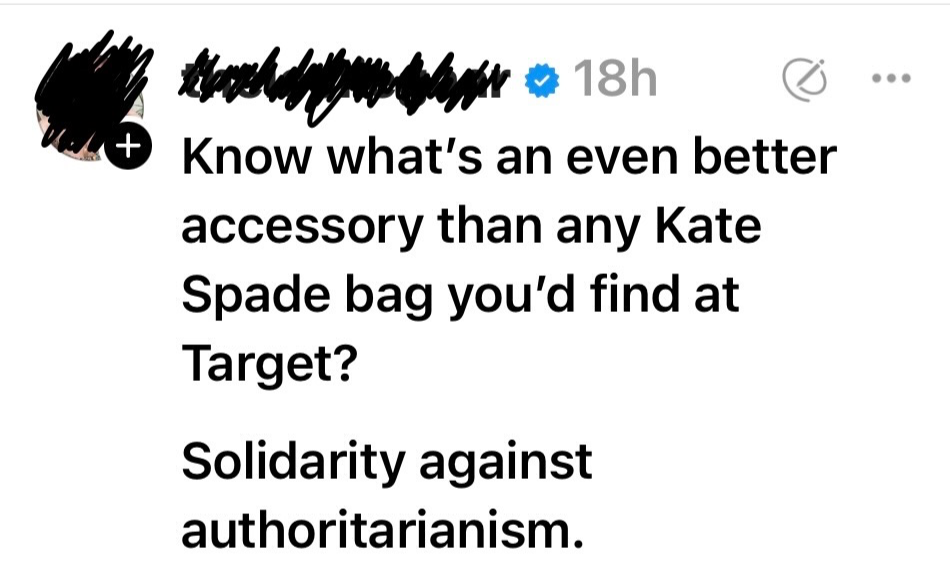Simple Living as Resistance
- Elizabeth

- Apr 22, 2025
- 4 min read
Updated: Apr 23, 2025
Simple living is something BFJN has been talking about for decades now. It is one of the four areas of focus of our Lazarus at the Gate study (the others – living gratefully, justly and generously).
Today I want to talk about how simple living can be an act of resistance. It is of course a part of how we can better align the way we live with what we believe and what we value, but can also be a part of how we help shape what our society looks like.
We know that resisting the indoctrination of the consumer-driven; wealth-seeking; accumulation culture we are surrounded by is vital. It is an important part of how we respond to the call of Jesus to love God and our neighbor.
In the past few months it seems there has been more talk on social media and in general that touches on living simply – or at least limiting ourselves. The impetus has been boycotts or more specifically discussion around how where we spend our money being a form of agreement with or resistance to what a company does, values or supports.
These conversations have often come up around pushes to spend at small business over big corporations, intentionally shopping at places owned by women or people of color (or both!) to buying environmentally conscious products. All of these potential choices reflect values and making a choice to demonstrate those values through how we use our money.
Recently many companies have changed their polices around DEI, scaling “back or set(ing) aside the diversity, equity and inclusion initiatives that much of corporate America endorsed following the protests that accompanied the Minneapolis police killing of George Floyd . . .” (WDSU News). In an effort, it seems, to please right wing activists and influencers and to comply with Donald Trump’s executive orders targeting DEI and promising punitive measures for those who do not get in line many companies are reversing, abandoning or gutting their previous policies and commitments.
Here are a few examples from a recent article in Forbes:
Constellation Brands Inc., which brews Corona and Modelo Especial beer, renamed its DEI team to “inclusive culture,” reframed its supplier diversity goals to focus on all small businesses and will no longer participate in Human Rights Campaign external surveys, Bloomberg reported.Feb. 28
State Street, which installed the famous “Fearless Girl” statue in Manhattan in 2017, previously expected boards in major indexes to be 30% female and S&P 500 companies to have at least one racial minority director, but these requirements appear to have been dropped in the company’s new proxy voting guidance published on its website, which the company told Reuters was “to ensure alignment with global protocols and local laws and regulations.”
Bank of America will end “aspirational” targets for diversity hiring and replaced the word “diversity” with “talent” and “opportunity” in an annual report, Bloomberg reported.
There are dozens of other companies listed in this article and corroborating and additional information can be found with a simple google search.
One company who abandonment of its DEI commitments has garnered quite a bit of attention is Target. From a January 2025 CNN article –
“Target said in a statement Friday that it will end its three-year diversity, equity and inclusion goals. In 2022, the company said that those goals included ensuring “equitable access to career advancement” and “equitable business decisions that increase relevance with diverse guests and support economic inclusivity.” Target had also committed in 2020 to expand Black representation at the company by 20%.”
This decision led to a pretty organized boycott of Target – while others targeting Amazon, Wal-Mart and other companies have also been championed the Target boycott has been sustained and seems to have captured a lot of attention.
I have so appreciated seeing and having discussions about how we can use the power of our dollars to demonstrate what we believe. In the case of Target their cowardly abandonment of the values of diversity, equity and inclusion warrants a significant response and refusing to shop there is one of the most powerful ways we can demonstrate our deep disagreement with their decision.
As many people have engaged in the boycott they are catching on to the value of simple living more generally:



What these – and so many more – posts highlight is the how finding enough, avoiding mindless spending and being content with less allows us to be free to withhold our dollars when we want to. To demonstrate our values through spending, or not spending.
There is so much value and freedom in finding contentment in having less. One element of that freedom is it eventually means we understand we need less and are therefore less beholden to companies whose values are so counter to ours.
An important caveat is that of course this is not always possible. Big corporations like Target and Wal-mart have created their business model on driving out small businesses so that sometimes they are literally the only game in town and/or because of their purchasing power their prices are so much lower than many businesses that do remain – online or in stores. For some boycotting or abandoning these companies entirely is not an option. Which is why it is vital for those who can make these choices to make them – to be intentional about how and where we spend. To magnify the impact.
Living more simply is one way to meet this moment. To cultivate a freedom from reliance on over-consumption is an important way to be free from reliance on companies whose values and methods do not align with ours and to be free to support those that do.



Comments